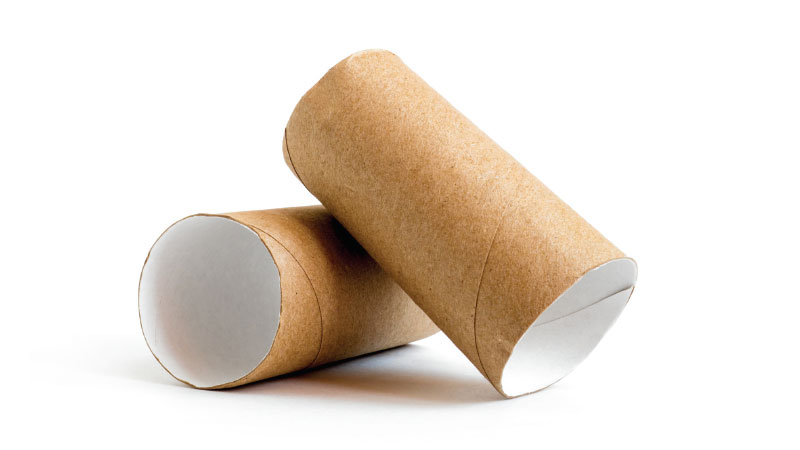As the world adapts to dealing with coronavirus – social distancing, working from home, and self-quarantining if ill – the perceived hoarding and scarcity of toilet paper has emerged almost as a joke. But, if people start flushing unsuitable materials, the results will be anything but funny.
As toilet paper runs short, many citizens may turn to alternatives such as “flushable” wipes and sanitizing wipes. These poor substitutes can cause problems for the nation’s sewers that could include backups into homes and malfunctioning treatment equipment.
“If kitchen towels, baby wipes or industrial papers are used as a replacement for toilet paper, our sewage systems could readily become blocked with the resulting chaos and increased health risks associated with this,” said Professor Richard Wilding, Professor of Supply Chain Strategy at Cranfield School of Management (Bedford, U.K.), in a release.
Flush Wisely
“Being self-quarantined at home can be tough,” said Walter E. Marlowe, WEF Executive Director. “Being self-quarantined at home with a backed-up sewer is much, much worse. Do not flush things that should not be flushed.”
Rob Villee, former Executive Director of the Plainfield Area Regional Sewer Authority (Middlesex, N.J.) had similar advice, “Don’t flush baby wipes, ‘flushable’ wipes, or any other single-
use plastics.
“Take this time to learn to be more conscious about the products you use and how they affect the sewer system,” he said. “And if you do use alternatives to toilet paper, just dispose of them in the garbage, where they belong.”
Three Ps Only!
Educational materials from WEF lay out the best practices quite simply: “Only the three Ps belong in the toilet: pee, poop, and toilet paper. Period. Anything else – including wipes – is bad news for the pipes and pumps that carry water from your home to your community water resource recovery facility, where professionals are working 24/7 to clean your used water.”
Even those products marked “flushable” are not.
“There is no wastewater recognized standard to ‘certify’ what is flushable other than toilet paper,” according to Brianne Nakamura, Senior Manager of Technical Programs in the Water Science and Engineering Center at WEF. “When in doubt, don’t flush it. Use the trash can.”
Proper Precautions
If a sewer does get clogged, wastewater agencies will respond because maintaining water and wastewater infrastructure is vital service during times of emergency. The Metropolitan Water Reclamation District of Greater Chicago released a fact sheet on its coronavirus response that states, MWRD “continues to provide critically important water reclamation operations and stormwater management services around the clock to ensure the region’s wastewater is cleaned and that public health and the environment are protected.” It continues, the “essential work at the MWRD will continue despite all these obstacles.”
One of those obstacles is a challenging staffing situation for water workers, according to Villee. Many water companies are already running on reduced staff because of the coronavirus pandemic, he said.
“The last thing we want is an entire crew getting stuck in quarantine and unable to work,” Villee said. “So we’ve started splitting staff into groups that work on alternating days.”
Working from home isn’t an option for many water workers, Villee said. “In our industry, a lot of physical work is still required,” he said. “Some things we can monitor remotely, but a lot of the essential maintenance work we do requires a physical presence.”
This manual and in-person work includes unclogging lines jammed with things that should not be flushed.
Safe Sewers
It’s also assuring to know that the U.S. Environmental Protection Agency has stated “there is no evidence to date that COVID-19 virus has been transmitted via sewerage systems, with or without wastewater treatment” and the regular procedures and personal protective equipment (PPE) that wastewater operators use protects against coronavirus. That’s good news.
On the other hand, water workers often work in crews that require face-to-face contact with customers and coworkers. To help prevent person-to-person spread, services have been reduced somewhat. Villee said that the Plainfield Area Regional Sewer Authority has cut non-essential and preventive maintenance and billing activities to minimize the spread of the virus. They’ve also taken a second look at their PPE.
“We’ve ordered new masks with [filtration] cartridges,” he said. But due to supply chain interruptions, the cartridges haven’t arrived yet. Still, he said, it’s only
a precautionary step and the standard
PPE should be enough.
Toilet Teamwork
As coronavirus continues to interrupt our daily lives, it’s up to all of us to help each other out, Marlowe said. That includes
better cooperation between utility workers and the public.
“Our water and wastewater operators always protect our public health and keep our systems running smoothly,” he said. “Let’s help them out by following their guidance when it comes to what goes
down the toilet.”
– Will Fowler


